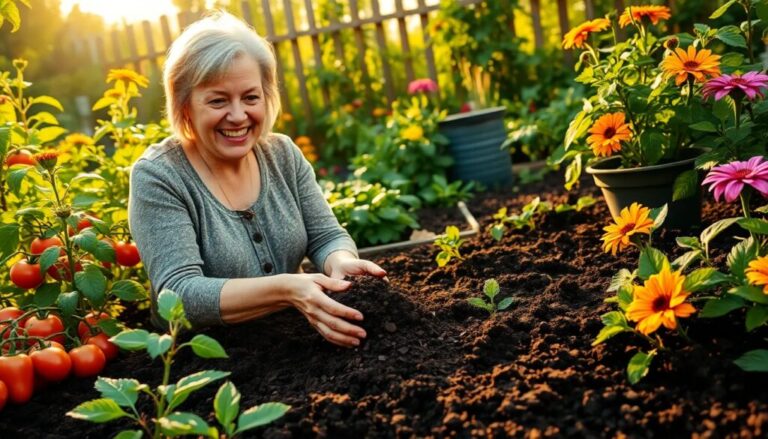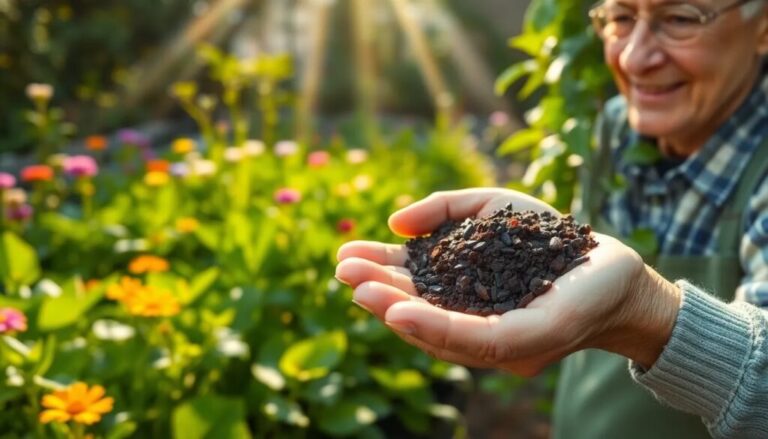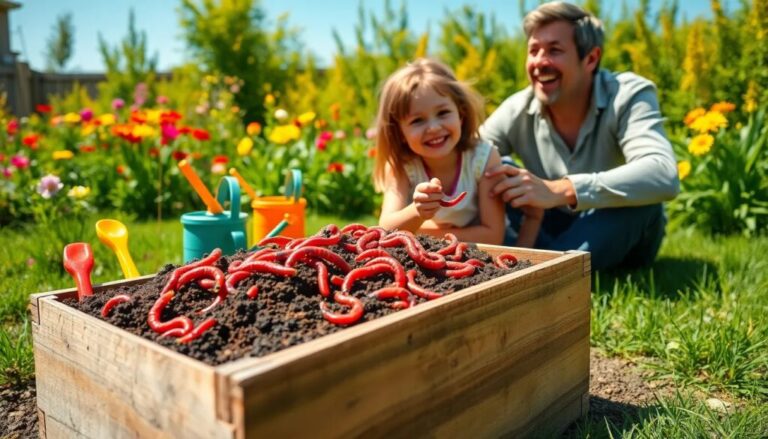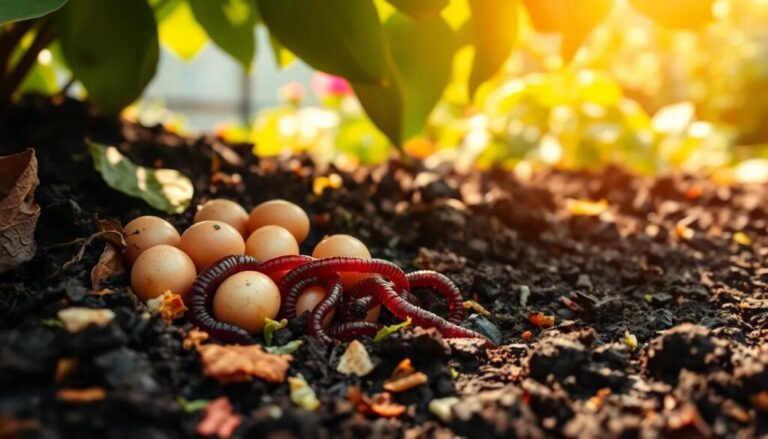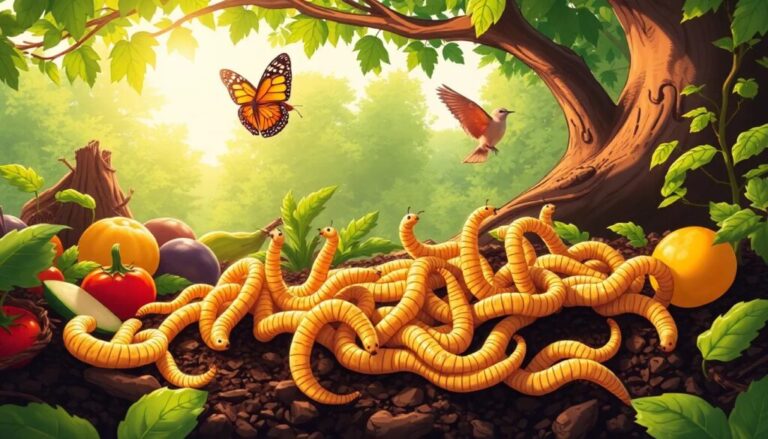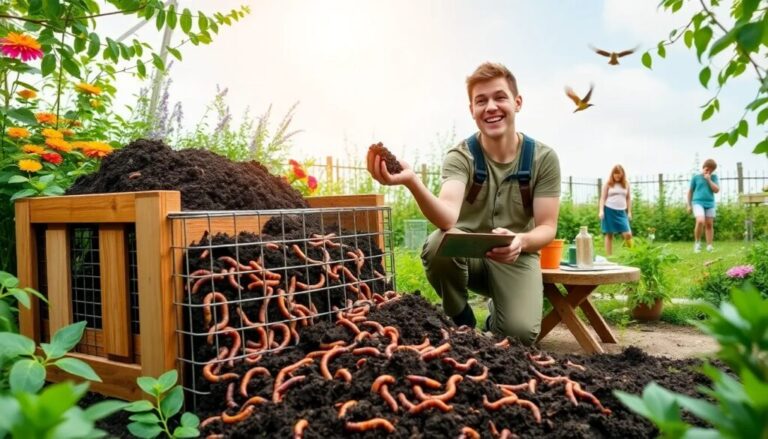Compost worms vs earthworms: what’s the difference?
Compost worms vs earthworms: What’s the difference?
When it comes to composting and gardening, it is essential to understand the differences between compost worms and earthworms. Although both types of worms play important roles in the soil and compost life cycle, their benefits and characteristics vary considerably. In this article, we will explore these differences and how each type of worm can influence the health of your garden.
Compost worms, especially known as Red Wigglers (Eisenia fetida), are best suited for composting, while earthworms, such as Aporrectodea calliginosa, are more beneficial for the soil. Below, we will break down these differences and their benefits.
How do compost worms benefit composting processes?
Compost worms are essential to the composting process because of their ability to break down organic matter efficiently. These worms consume almost their weight in food daily and produce nutrient-rich compost. Here are some ways compost worms benefit the composting process:
- Rapid decomposition: Compost worms speed up the decomposition process by consuming organic waste quickly.
- Vermicompost production: Their excrement, known as vermicompost, is a highly effective natural fertilizer.
- Improved compost structure: They increase aeration and mixing in the compost, which improves its quality.
In addition, by feeding on decomposing organic matter, they help reduce the volume of waste, which is beneficial for the environment. Their presence in a composting system can significantly speed up the process and improve the end results.
What are the characteristics of red wigglers?
Red Wigglers are one of the most popular species for composting. Their unique characteristics make them ideal for this purpose:
- Adaptability: They can live in a variety of conditions, making them ideal for indoor and outdoor composting.
- Feeding: They prefer organic waste to soil, making them perfect for composting systems.
- Rapid reproduction: They reproduce quickly, allowing you to maintain a healthy population in your compost.
One of the advantages of red wigglers is their ability to tolerate moisture and temperature conditions compared to other earthworm species. This allows them to thrive in compost piles that may be too extreme for other worms.n ser demasiado extremas para otros gusanos.
Can I use earthworms in a composting system?
The short answer is yes, you can use earthworms in a composting system, but there are important considerations to keep in mind. Although earthworms, such as Aporrectodea calliginosa, can help improve compost, they are not as efficient as compost worms.
Earthworms tend to prefer soil and may not stay in a compost system if conditions are not optimal. In addition, their decomposition rate is slower compared to compost worms. If you decide to include earthworms, be sure to provide a suitable environment to prevent them from leaving the system.
What are the ideal conditions for compost worms?
For compost worms to thrive, it is crucial to create a suitable environment. Here are some ideal conditions:
- Moisture: Maintain a moisture level between 65% and 75% to prevent them from drying out.
- Temperature: A temperature range of 15°C to 25°C is optimal for their activity and reproduction.
- Food: Provide a balanced diet that includes fruit scraps, vegetables, and shredded paper.
If these conditions are met, compost worms will not only survive but also thrive, helping to speed up the composting process and improve the quality of the compost produced.ondiciones, los compost worms no solo sobrevivirán, sino que también prosperarán, ayudando a acelerar el proceso de compostaje y a mejorar la calidad del compost producido.
How do earthworms contribute to soil health?
Earthworms play a crucial role in soil health by improving its structure and fertility. Here are some ways they contribute:
- Soil aeration: By digging tunnels, earthworms improve soil aeration, allowing for better air and water circulation.
- Improved water retention: Their tunnels help water penetrate the soil, improving moisture retention.
- Decomposition of organic matter: They contribute to the decomposition of organic matter, which enriches the soil with nutrients.
In summary, although earthworms are not as effective at composting as compost worms, their contribution to soil health is undeniable. They are essential for maintaining a healthy ecosystem in the garden and ensuring that plants grow optimally.ms no son tan eficaces en el compostaje como los compost worms, su contribución a la salud del suelo es innegable. Son esenciales para mantener un ecosistema saludable en el jardín y para asegurar que las plantas crezcan de manera óptima.
What should I consider when choosing worms for composting?
Choosing the right worms for your composting system is critical to maximizing efficiency. Here are some key considerations:
- Worm type: Opt for Red Wigglers for composting. They are superior at breaking down organic waste.
- Environmental conditions: Assess the climate and environment where the compost will be located to choose worms that can thrive there.
- Nutrient requirements: Consider what type of waste you will be composting and choose worms that feed on those specific materials.
By taking these factors into account, you can ensure that your composting system is effective and produces the best compost possible. The benefits of using compost worms vs. earthworms are clear, and the right knowledge can help you make informed decisions for your garden.
If you would like more information on this topic, here is a helpful video.





